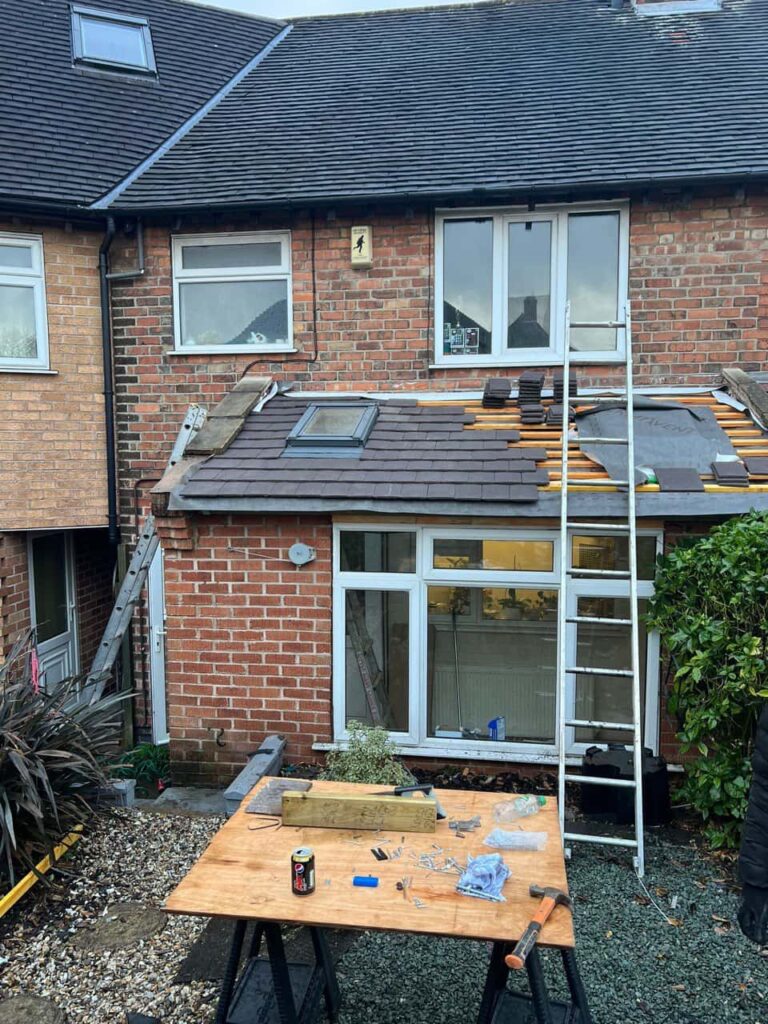Roof repointing is an essential part of maintaining the structural integrity and longevity of your roof. It helps to ensure that the roof remains watertight and that the mortar between the tiles or slates remains secure. However, many homeowners are unsure about when to schedule roof repointing or what signs to look for to determine if it is needed. In this article, we will explore when to schedule roof repointing for maximum protection and why it is so crucial for your home.
What Is Roof Repointing?
Roof repointing refers to the process of renewing or replacing the mortar that holds your roof tiles or slates in place. Over time, the mortar can degrade due to weather exposure, temperature fluctuations, and general wear and tear. Repointing ensures that the mortar is solid, which prevents water from penetrating the roof structure and causing damage.
Signs You Need Roof Repointing
1. Cracked or Missing Mortar
One of the most obvious signs that your roof may need repointing is the presence of cracked or missing mortar between your roof tiles or slates. If you notice visible gaps or cracks, water could easily penetrate your roof, leading to leaks and further damage. In this case, scheduling repointing as soon as possible will help to maintain the integrity of your roof and protect your home from water damage.
2. Damp or Leaking Roof
If you begin to notice damp patches or leaks in your ceiling, it could indicate that the mortar has broken down and is no longer effective in keeping out water. This is a clear sign that your roof requires repointing. Roof leaks can cause extensive damage to your home, including dampness, rot, and mould growth. It is crucial to address this issue immediately by scheduling roof repointing to prevent further damage.
3. Aging Roof Mortar
Even if you don’t see visible cracks or leaks, the mortar on older roofs can naturally deteriorate over time. If your roof is more than 20 years old, it may be time to inspect the mortar and consider repointing. Roofs that have experienced decades of exposure to the elements may have worn-out mortar that is no longer providing the necessary protection against water infiltration.
4. Loose Roof Tiles or Slates
Loose or displaced tiles and slates can indicate a problem with the mortar. If the mortar has weakened, tiles may shift or become loose, leaving gaps that expose your roof to water damage. A professional roofer can assess the condition of your tiles and advise if repointing is needed to secure them back in place and prevent further issues.
5. Visible Wear and Tear on the Roof’s Exterior
Over time, roof tiles and slates are subjected to wear and tear from weather conditions, debris, and general environmental factors. If you notice that your roof appears worn or aged, it may be a sign that the mortar has begun to break down. Regular inspections are essential to ensure that the mortar remains intact, and if necessary, repointing will restore the roof’s protective barrier.
When to Schedule Roof Repointing
1. Before the Rainy Season
It is best to schedule roof repointing before the rainy season or during the dry months. This ensures that your roof is fully protected against the elements and that any weak mortar is repaired before heavy rainfall. Waiting until the rainy season can lead to leaks and water damage, which could have been avoided with timely repointing.
2. During Routine Roof Inspections
Regular roof inspections are essential for identifying issues before they escalate. If you have a professional roofer inspect your roof annually, they can identify the signs of wear and tear, such as deteriorating mortar, and recommend repointing if necessary. Scheduling repointing during a routine inspection is a proactive way to maintain the health of your roof.
3. When Planning a Roof Renovation
If you are planning to renovate or update your roof, it is a great time to consider repointing. Repointing during a renovation ensures that your new roof structure is sealed and protected from water damage. It is always best to repoint before replacing tiles or installing new materials to ensure the entire roof is in optimal condition.
Conclusion
Roof repointing is a critical maintenance task that helps to extend the life of your roof and protect your home from water damage. Identifying the signs that your roof needs repointing—such as cracked or missing mortar, damp patches, or loose tiles—is key to preventing costly repairs and maintaining the integrity of your property. By scheduling repointing at the right time, such as before the rainy season or during a routine inspection, you can ensure that your roof remains strong, secure, and watertight for years to come.
If you’ve noticed any of the signs mentioned above or suspect that your roof may need repointing, don’t wait for the problem to worsen. Contact us at Beeston Roofing Repairs today to schedule an inspection and ensure your roof is in top condition. Protect your home and your investment with professional roof repointing services.
Call us on: 0115 647 1193
Click here to find out more about Beeston Roofing Repairs
Click here to complete our contact form and see how we can help with your roofing needs.

